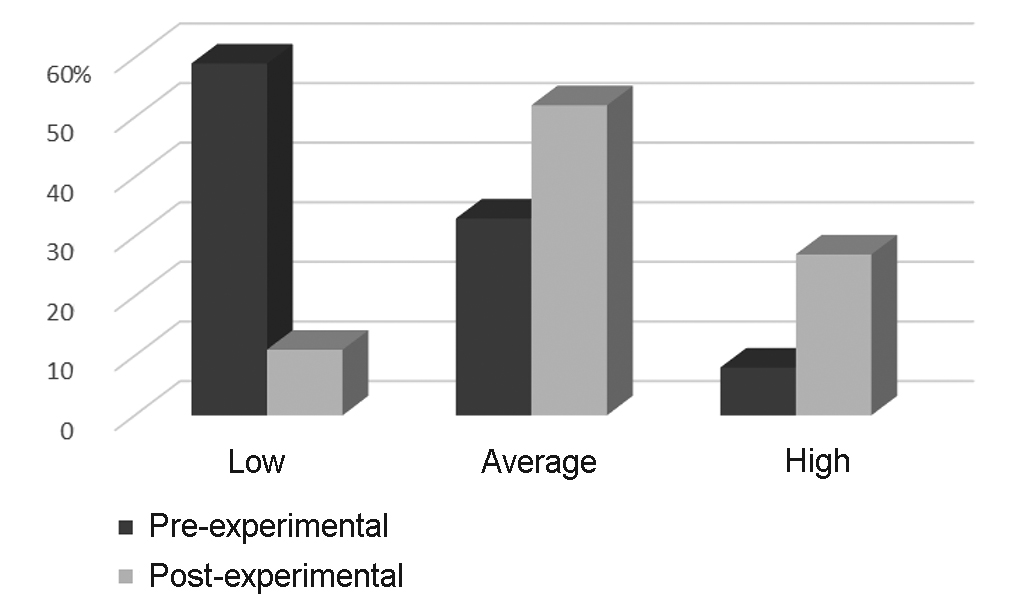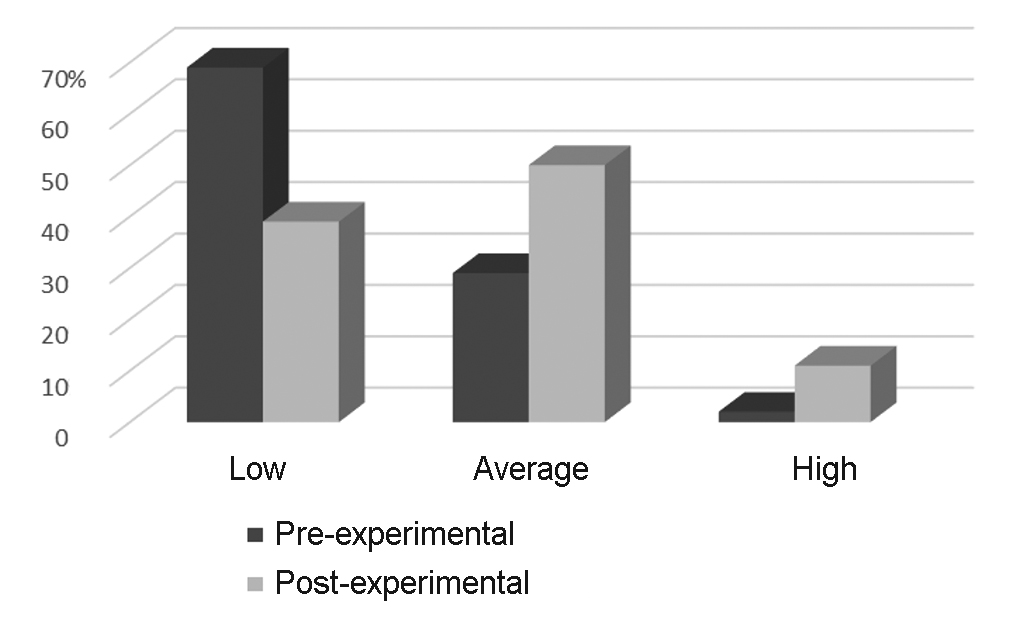Academic physical education and sports driven self-development model with psychological follow-up
ˑ:
Associate Professor, PhD A.A. Opletin1, 2, 3
1Perm National Research Polytechnic University, Perm
2Perm State Pharmaceutical Academy, Perm
3Perm State Institute of Culture, Perm
Keywords: personality, activity, self-development, technology, paradigm.
Background. Having analyzed the theoretical findings on the subject in the national and foreign study reports, we found certain contradictions between the extensive experience and knowledge in the personality self-development domain on the one hand and the practical application of the relevant technologies in the physical education and sports sector. It should be mentioned that many researchers consider individual social, mental, physiological and physical maturity as the key criteria of a successful self-development in the physical education domain. A matured individual, as believed by many analysts, is the one that is highly motivated and fit for self-development in the physical education process [6].
The article analyzes the university student’s self-development process and challenges in the academic studies and off-class group sport practices with a special attention to the conscious and subconscious, biological and social aspects of the individual socializing processes and behavioral patterns in the academic studies on the whole and physical education in particular; with willpower (as provided by A. Maslow) considered an energy source for the individual progress. It is via the education process that the individual world outlooks, mindsets and values are established and asserted to manifest themselves in the personal life motivations and basics of the Self-concept. Interrelations of the conscious and subconscious elements shall be taken into account in the efforts to expand the mental comfort zone for the educational, cultural and self-development aspects of the individual progress, in the context of the I.P. Pavlov’s statement that the individual psycho ‘is undoubtedly formed of subconscious and conscious elements’ [7, p. 105]. A key emphasis, however, shall be made on the conscious aspects of the individual progress agenda in the wide range of the self-development domains from the everyday interpersonal, ethical etc. to professional skills, abilities, habits and behavioral patterns – forming a basis for the individual motivations and mastery viewed as the core objective of the academic educational process.
Education literature on the subject recognizes the importance of the issues of interrelations of the convincing and suggestion technologies for an individual progress [3, 4] with a high priority always given to new psychological development methods to facilitate the young people’s progress.
Objective of the study was to provide theoretical and experimental substantiations for the academic physical education and sports driven self-development model of the authors’ design.
Methods and structure of the study. Modern physical education may be defined as a rather specific knowledge field that offers a great resource for the individual self-development, perfection and self-assertion agenda [1, 2, 5, 6]. This understanding of the physical education service has been practically tested in the academic physical education service provided by the Perm State Institute of Culture (PSIC).
The academic physical education and sports driven self-development model testing experiment was run at Perm State Institute of Culture in 2014 through 2017, with 870 students sampled for the study. The sample was split up into Experimental Group (EG, n-440) and Reference Group (RG, n=430), with the EG and RG trained as required by the new academic physical education and sports driven self-development model to encourage the individual progress; and the traditional academic physical education curriculum, respectively. The personality self-development aspects were rated by the author’s method adapted for the study purposes [4].
Study findings and discussion. The pre-experimental tests of the sample found 59%, 33% and 8% of the students being low-, averagely- and highly-active in the self-development domain, respectively; with the self-development fitness tested low, average and high in 69%, 29% and 2% of the sample, respectively, i.e. indicative of the sample being largely innocent in and unfit for the self-development technologies.
The post- versus pre- experimental self-development activity tests in the EG found it to grow to 11% low, 52% average and 27% high: see Figure 1.

Figure 1. Pre- versus post-experimental self-development activity test rates of the EG
The post- versus pre- experimental self-development fitness tests in the EG found it to grow to 39% low, 50% average and 11% high: see Figure 2.

Figure 2. Pre- versus post-experimental self-development fitness test rates of the EG
The post- versus pre- experimental self-development ability tests in the EG found it to grow to 49% low, 35% average and 16% high (versus the insignificant changes in the RG): see Figure 3.

Figure 3. Pre- versus post-experimental self-development ability test rates of the EG
The post- versus pre- experimental management and communication skills tests found them to grow to 17% and 21.6% in the EG versus 5.4% and 12% in the RG, respectively.
Conclusion. The model testing experiment showed benefits of the new model for the academic education service since the self-development agenda is increasingly central for the modern education paradigm and viewed by many as a cornerstone for the fundamental life values, priorities, and professional self-identification and progress.
References
- Lubysheva L.I., Zagrevskaya A.I. Struktura i soderzhanie sportivnoy kultury lichnosti [Structure and content of personal sports culture]. Teoriya i praktika fiz. kultury, 2013, no. 3, pp. 7-16.
- Makeeva V.S., Yamaletdinova G.A. Kulturologicheskie aspekty obrazovatelnoy podgotovki studentov v sfere fizicheskoy kultury [Cultural aspects of educational training of students in physical education]. Obrazovanie i samorazvitie, 2011, vol. 3, no. 25, pp. 119- 125.
- Opletin A.A. Samorazvitie lichnosti studenta sredstvami universalnoy sistemy razminki na zanyatii po fizicheskoy kulture [Self-development of student's personality by means of universal warm-up system at physical education class]. Perm: SPb IVESEP publ., 2012, 200 p.
- Opletin A.A. Diagnostika samorazvivayushchey aktivnosti v obrazovatelnom protsesse po formirovaniyu fizkulturno-sportivnykh kompetentsiy i kompetentnosti samorazvitiya [Diagnostics of self-developing activity in educational process to build physical education and sports competences and competency of self-development]. Perm: PSIC p 796.011.3 ubl., 2016, 218 p.
- Opletin A.A. Samorazvitiya lichnosti v uchebnom protsesse po fizicheskoy kulture [Self-development of personality in physical education process]. Teoriya i praktika fiz. kultury, 2017, no. 6, P. 50.
- Opletin A.A. Obosnovanie fenomena gotovnosti kak vazhnogo faktora samorealizatsii lichnosti v protsesse samorazvitiya [Substantiation of phenomenon of fitness as core factor of personality self-implementation in self-development process]. Fizicheskaya kultura: vospitanie, obrazovanie, trenirovka, 2017, no. 2, P. 58.
- Pavlov I.P. Izbrannye trudy [Selected Works]. Moscow, 1957, 544 s.
- Sivtsova A.V. Tsennostnye orientatsii lichnosti: ot vnutrennikh konfliktov k samorazvitiyu [Value orientations of individual: from internal conflicts to self-development]. Barnaul, 2010, 356 p.
- Sharshov I.A. Professionalno-tvorcheskoe samorazvitie lichnosti: sushchnost i tekhnologiya [Individual professional and creative self-development: essence and technology]. Study guide. Moscow, Tambov, 2003, 215 p.
- Shchukina M.A. Psikhologiya samorazvitiya lichnosti: problemy, podkhody, gipotezy [Psychology of personality self-development: problems, approaches, hypotheses]. St. Petersburg: SPU publ., 2009, 152 p.
Corresponding author: opletin.a@yandex.ru
Abstract
Objective of the study was to provide theoretical and experimental substantiations for the academic physical education and sports driven self-development model of the authors’ design. The model testing experiment was run at Perm State Institute of Culture in 2014 through 2017, with 870 students sampled for the study. The sample was split up into Experimental Group (EG, n-440) and Reference Group (RG, n=430), with the EG trained as required by the new academic physical education and sports driven self-development model to encourage the individual progress agendas. The model testing experiment showed benefits of the new model for the academic education service since the self-development agenda is increasingly central for the modern education paradigm and viewed by many as a cornerstone for the fundamental life values, priorities, and professional self-identification and progress.


